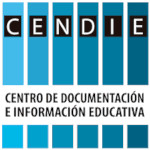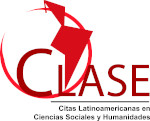About the Journal
Focus and scope
Launched in 1974, the Senac Journal of Education and Work brings up innovative ideas and encourages important debates on Vocational Education.
Until 2021, it was four-monthly publication. Now the journal adhered to continuous publication mode, in order to have greater agility in its editorial process.
Its articles provide indispensable reflections for professionals in the area of Education, as well as contribute to the studies of teachers, students and researchers from various sectors of the economy.
The Senac Journal of Education and Work integrates several indexing databases worldwide and is available at the Periodicals Portal of the Coordination for the Improvement of Higher Education Personnel (Capes) of the Brazilian Ministry of Education: http://www. Periodicos.capes.gov.br/. Notably, the thematic coverage of this Journal falls within the broad areas of Humanities and Applied Social Sciences.
In the most recent evaluation released by Capes, referring to the Qualis Journals Classification in Quadrennium 2013-2016, the Senac Journal of Education and Work was well-evaluated with B2 marks in Education; B2 in Teaching; B2 in Architecture, Urbanism and Design; B2 in the Interdisciplinary area; B4 in Public and Business Administration, Accounting and Tourism; B4 in Urban and Regional Planning / Demography; besides C in Geography.
Peer review process
The BTS Evaluation Committee receives articles from authors affiliated with national and international institutions in different languages.
The editor-in-chief, who receives the article, firstly checks its originality. Being original, it makes the first textual adjustments, if necessary (spelling, grammar, and adaptation to the journal's editorial standards), so that it can be received by the Evaluation Committee.
The editor-in-chief searches among the body of evaluators registered in the journal the advanced knowledge specific to the topic addressed. If an ad hoc evaluator is not yet available, she searches for it in the advanced research and teaching centers of Brazilian and international universities, analyzing the curriculum lattes of the faculty. The selected ad hoc evaluator reserves the right to approve the article for publication, to reject it, or to propose improvements that lead to the quality required for publication.
The opinion of each evaluator is based on the following categories: Relevance and adequacy; Insertion in the thematic/editorial line of the Journal; Relevance and novelty of the article; and Writing and organization of the text.
If there is a discrepancy between the opinion of the evaluator and that of the Editorial Committee, the article follows for the analysis of more evaluators, with up to three supervisors. Once approved, the article is also reviewed by the Department of Documentation of the National Department of Senac, which asks the authors for the necessary information regarding the references cited, should there be any gap in this regard.
From the submission date of the article, a maximum of one year allows for the conclusion of the evaluation. The identity of the evaluators is revealed at the end of the edition of each volume.
Publication frequency
The Senac Journal of Education and Work adopts the continuous publication mode.
Open access policy
This journal offers immediate free access to its content, following the principle that providing free scientific knowledge to the public provides greater global democratization of knowledge.
Sources of support
We thank the Coordination for the Improvement of Higher Education Personnel (Capes) and other institutions, repositories and indexation databases.
- Portal de Periódicos da Capes
- BBE – Bibliografia Brasileira de Educação (Brasil, Cibec/Inep/MEC)
- Centro de Documentación e Información Educativa (CENDIE)
- Citas Latinoamericanas en Ciencias Sociales y Humanidades (CLASE)
- Centro de Recursos Documentales e Informáticos (CREDI/OEI)
- Índice de Revistas de Educación Superior e Investigación Educativa (Iresie)/UNAM
- Base Minerva/UFRJ
- Ulrich's International Periodicals Directory
- European Reference Index for the Humanities and Social Sciences (ERIH Plus)
- Latindex
- LivRe! – Revistas de Livre Acesso (CNEN/CIN/MCTI)
- Google Scholar
- Directory of Open Access Journals (DOAJ)
- Red Iberoamericana de Innovación y Conocimiento Científico (Redib)
- Biblioteca do Senado Federal - Rede RVBI
- Library of Congress
- EuroPub
Journal history
As of 1974, the Senac Journal of Education and Work published its first number, and so started a successful story: a technical-scientific journal created by the National Service for Commercial Apprenticeship (Senac), with the objective of promoting research on human reality in the relations between Education and Work.
This Journal constitutes a vanguard in the specialized knowledge on the subject. Its leadership at the global level continues to this day, with thousands of readers who are students, teachers, executives, workers and interested in general who seek to deepen in the historical, economic, social, political and pedagogical perspectives of Vocational Education.
The Journal was edited by the Technical Documentation Center from 1974 until volume 30, number 2 (May to August 2004); by the Center for Distance Education up to volume 37, number 1 (January to April 2011); and by the Center for Educational Programs until volume 38, number 3 (September to December 2012).
Currently produced through the Department of Communication of the Senac National Department, the Journal won its electronic ISSN in 2016.
To follow up on its purpose of connectivity and sustainability, as of May 2016, the Senac Journal of Education and Work becomes exclusively electronic, beginning on the same date its publication in the Open Journal Systems (OJS).


















